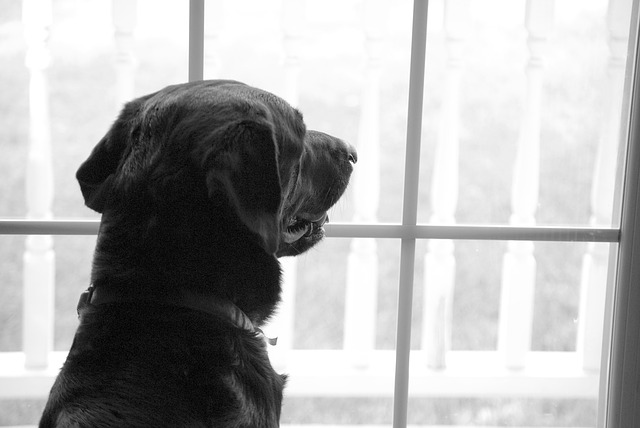Posts in Category: Oak Forest Veterinary Hospital News
Please Don’t Go: Understanding Canine Separation Anxiety

With Houston’s schools having just opened for the fall term, pet separation anxiety is a real concern. Oak Forest Veterinary Hospital understands that this transition can be especially difficult for our beloved pets. When our dogs show signs of anxiety or depression when left alone, we often develop feelings of guilt and worry. Pet parents can take comfort in the fact that separation anxiety is largely due to a dog’s natural instincts. For canines in the wild, abandonment can be life-threatening. Undomesticated dogs are with their packs continuously and are rarely alone. Isolation means they are vulnerable to predators and could even face starvation without their hunting partners. It’s only natural, then, for dogs to suffer anxiety when they are separated from their human pack.
Continue…
Collapsing Trachea: A Common Problem in Small Breed Dogs

If you own a small breed dog, you may have encountered the puzzling symptoms of tracheal collapse. Most characteristic of these is a honking cough that sounds something like a goose. Although episodes are usually brief, they can seem frightening to you and your dog.
Continue…
The Heat in the Street: How to Protect Pet Paws During the Summer
 Sunscreen? Check! Hat? Check! Most of us are pretty aware of UV and warm weather dangers that come with summertime outdoors. Like us, our pets are also susceptible to dehydration and heat illnesses, but we often overlook one of the most sensitive areas of concern: their paws.
Sunscreen? Check! Hat? Check! Most of us are pretty aware of UV and warm weather dangers that come with summertime outdoors. Like us, our pets are also susceptible to dehydration and heat illnesses, but we often overlook one of the most sensitive areas of concern: their paws.
Sometimes it can be easy to forget that pet paws are subject to injury because they certainly take a lot of wear and tear. We see our pets pounce, leap, and race across surfaces that would have us grasping our feet in pain. However, in actuality, paws are not so tough. In fact, paw pad injuries are quite common.
Keeping Your Lawn and Garden Free from Common Pet Poisons
 Spring dreams often include creating a backyard paradise or the most enviable, bountiful garden in the neighborhood. And, in accomplishing these tasks we often enlist the help of lawn and garden chemicals, which, unfortunately, are some of the most common pet poisons.
Spring dreams often include creating a backyard paradise or the most enviable, bountiful garden in the neighborhood. And, in accomplishing these tasks we often enlist the help of lawn and garden chemicals, which, unfortunately, are some of the most common pet poisons.
From pesticides to compost, our yards can present a plethora of pet risks when we are not aware of toxicity and accidental poison emergencies ensue. Continue…
